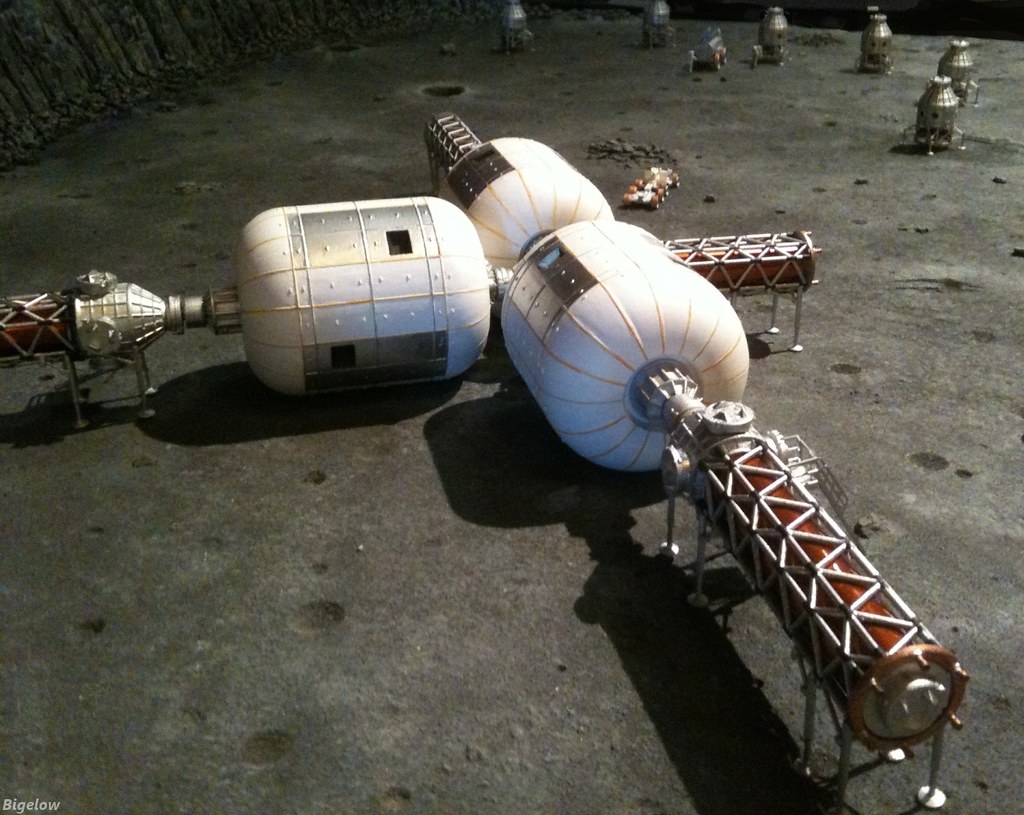Jeff Foust
SpaceNews
A positive review by the Federal Aviation Administration of a proposed Bigelow Aerospace lunar habitat is seen as a first step towards supporting commercial activities on the moon, but contrary to some reports, that review does not represent a government endorsement of property rights claims there.
In a December 22 letter to Bigelow Aerospace, the FAA’s Office of Commercial Space Transportation (AST) said it had completed a payload review of a proposed lunar habitat requested by the company in late 2013. The office, working with several other government agencies, said it was willing to use its authority to ensure Bigelow could carry out its activities there without interference from other companies licensed by the FAA.
“AST was able to assure Bigelow Aerospace that it in fact would use its launch licensing authority, as best it can, to protect private sector assets on the Moon and to provide a safe environment for companies to conduct peaceful commercial activities without fear of harmful interference from other AST licensees,” Mike Gold, director of Washington operations and business growth for Bigelow Aerospace, said in a Feb. 3 statement to SpaceNews.
First reported by Reuters February 3, news was interpreted by many as an endorsement by the U.S. government of lunar property rights for private companies. Nield said that was not the intent of the FAA’s review.
Although Bigelow has no immediate plans for a lunar base, the company requested the payload review — one part of the FAA’s overall launch licensing process — to identify any issues that could hinder private development of the moon. Bigelow decided to pursue the review after completing a report for NASA in 2013 that identified an uncertain regulatory environment as a major obstacle to commercial activities there.
“We think that, first of all, this is not an overnight process, and that is probably the main reason why we are starting on this,” Bigelow Aerospace founder and president Robert Bigelow said at a November 2013 press conference, discussing the company’s intent to request the payload review.
“They wanted to know, before they go through a lot of engineering design, analysis, and investment, whether there were going to be any showstoppers,” said George Nield, FAA associate administrator for commercial space transportation, at the FAA Commercial Space Transportation Conference here February 4.
“In this particular case, it looked like a really good idea that the government as a whole is supportive of,” Nield added.
“We’re not talking about property rights at this point,” he said. “What we’re talking about is having the U.S. government have a regulatory framework that provides some certainty so they will be free to proceed with their plans and raising of funds.”
Read the full article at SpaceNews, HERE.
Some Related Posts:
"The best of times, the worst of times..." (November 15, 2013)
Bigelow, NASA rumored contracted for the Moon (April 12, 2013)
"The Flight of the Dragon" Paul Spudis (May 16, 2012)
SpaceX joins Bigelow marketing LEO stations (May 11, 2012)
Boeing, Bigelow commercial crew concept Rob Coppinger (February 2, 2010)
Open letter to Charles Bolden from Robert Bigelow (October 16, 2009)
Boeing throws hat in with Bigelow (September 23, 2009)


No comments:
Post a Comment